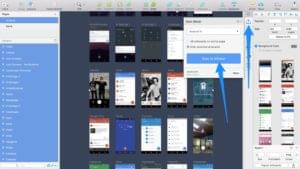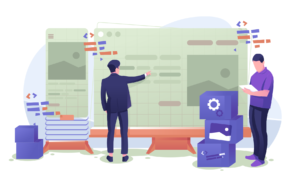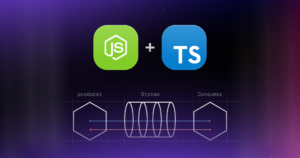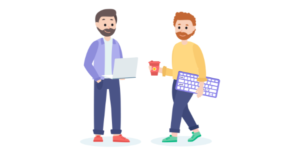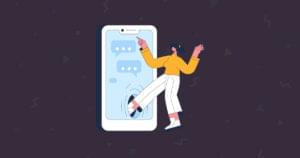Why Learn to Code? 17 Benefits of Learning to Code
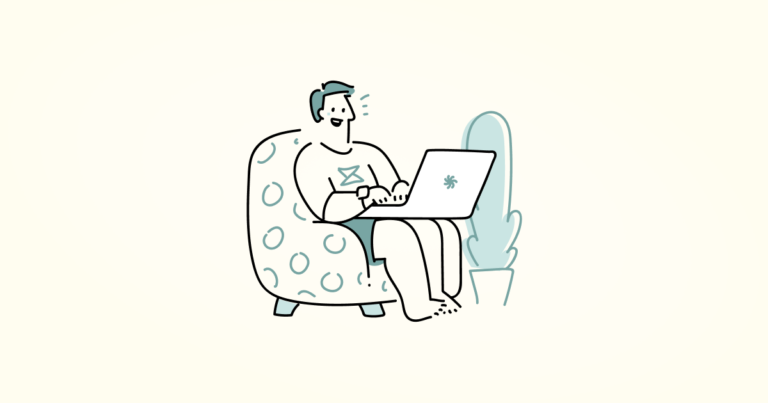
Anyone can learn to code. Whether you are a complete beginner or have some coding experience, learning to code can be a rewarding and empowering experience. But why should you learn to code? And how do you know if coding is the right career for you?
In this blog post, we will look at many of the benefits of learning to code. This will make it easier for you to decide whether or not to learn to code.
Key Takeaways
- Learning to code can increase earning potential, as coding skills are highly sought after in the job market, even in roles that don’t primarily involve programming.
- Coding can improve career satisfaction as it allows for flexibility, such as the ability to work from anywhere in the world or work as a freelance programmer.
- Learning to code makes you more capable in the digital world by enabling you to create your own apps and websites, automate tedious tasks, and improve problem-solving skills.
- Coding can be a fun and creative outlet, allowing you to bring your ideas to life, and joining the coding community can provide support and inspiration.
Anyone Can Learn to Code
One of the best things about coding is that anyone can learn how to do it. No matter your age, gender, or background, coding is a skill that anyone can pick up.
For a long time, people viewed coding as a skill for math and science geniuses. But that is no longer the case. While it helps to be good at math and have an analytical mindset, you don’t need to be a genius to learn to code. As long as you are willing to put in the time and effort, anyone can learn to code.
You can learn to code on your own
One of the best things about coding is that all you need is a device and internet connection to pick up the skill. And with the vast resources available online, it’s easier than ever to get started.
There are plenty of resources that can help you. Naturally, we recommend SitePoint Premium’s extensive library of books and courses from publishers like Wiley, A List Apart, and (of course) SitePoint.
If you’re looking for a place to start learning to code, we recommend Learn to Code with JavaScript. It’s free with your SitePoint account and is a full-length intro to coding for beginners that teaches JavaScript in the process.
With this guide, you’ll be learning one of the most popular programming languages on Earth and you’ll be on your way to a coding career.
Once you have a basic understanding of coding, you can start practicing by building simple projects. This will not only help you improve your skills but also give you a portfolio to show potential employers.
You can learn at your own pace
One of the great things about learning to code online is that you can learn at your own pace. If you have a busy lifestyle or other commitments, you can easily fit coding into your schedule.
You can choose to learn for a few hours a week or dedicate more time to it and learn full-time. And as you progress, you can go at your own pace and take on more challenging projects.
You don’t need a computer science degree
In the past, a career in programming or coding generally required a college degree. But that is no longer the case. With the growth of online learning, it is now possible to learn to code without going to college.
There are plenty of free resources available online that can teach you everything you need to know about coding. And many companies are now hiring coders without a college degree. So if you’re looking to get into coding without incurring the cost of college education, it is definitely possible.
You will be part of a growing community
When you learn to code, you will join a global community of like-minded individuals. This community is supportive and welcoming, and there are always people happy to help you out or give you advice.
In the coding community, you will find people from all walks of life, from all over the world. And as the community is constantly growing, you will always have new people to meet and learn from.
Learning to Code Increases Your Earning Potential
Learning to code can help you earn more money. In today’s job market, employers are constantly looking for employees with coding skills.
Even if your job doesn’t require you to write code, being able to understand and work with code will give you an advantage in many adjacent roles. That’s better earning potential, and a leg up over other candidates who don’t have these skills.
Computer programmers enjoy a high-paying career
One of the main reasons people decide to learn to code is because it is a well-paying career. According to the Bureau of Labor Statistics, the median salary for computer programmers in the United States was $93,000 in 2021.
And the demand for programming skills is only increasing. With the growth of the tech industry and the broader digital-first world, there is a constant need for new developers. So if you’re looking for a stable and high-paying career, learning to code could be a great option for you.
More jobs in the future will require programming skills
In the past, you needed development skills only if you wanted a development job. But as the world has become more digital, that is changing.
More and more companies are looking for employees with at least some basic computer programming skills, even if the job doesn’t involve programming as the primary function. And as technology becomes more integral to our lives and work, it’s likely that even more jobs will require at least some coding skills.
In some cases, it’s a requirement. For example, some jobs in marketing and SEO now look for Python or R experience and an ability to work with data and APIs. Content jobs might expect knowledge of markup languages like HTML, and sometimes even CSS.
In other cases, it’s a bonus skill that can improve your negotiating position and income. Even jobs that don’t require coding skills often benefit from them. For instance, project managers who know how to code can better manage development teams and understand what they’re working on.
It’s correct to be skeptical of overblown claims that someday everyone will need to be able to code. But it’s much safer to assume that as the world becomes more code-dependent, even more jobs will require coding skills.
So if you’re looking for a skill that is in high demand and will only become more valuable in the future, learning to code is a great option. It’s one that remains useful even if a development career doesn’t turn out to be your cup of tea.
Learning to Code Can Improve Career Satisfaction
You can work anywhere in the world
Another great benefit of being a coder is that you can work from anywhere in the world. As long as you have a laptop and an internet connection, you can work as a programmer from any location.
This is perfect for people who want the freedom to travel and work at the same time. And with more and more companies offering remote options, and high demand for those with coding skills, there are plenty of opportunities to work in a location-independent way as a programmer.
You can work for yourself
If you don’t want to work for someone else, you can work for yourself as a freelance programmer. This is a great option if you want the flexibility to choose your own projects and work hours.
There are many platforms that allow you to find programming work, and as a freelancer, you can set your own rates and work on projects that interest you.
If you’re looking for a career that offers plenty of freedom and flexibility, coding as a contractor or freelancer is a great option.
Learning to Code Makes You More Capable
You will be able to make your own apps and websites
One of the best things about learning to code is that you will be able to create your own apps and websites. If you have an idea for a project, you can make it a reality by coding it yourself.
Not only will you be able to build anything you can imagine, but you will also have the satisfaction of knowing that you created it yourself. And as your skills improve, you will be able to create more complex and sophisticated projects.
Learning to code will help you understand how things work in today’s digital world
In today’s digital world, code powers almost everything. And as you learn to code, you will develop a better understanding of how things work in the digital world.
You will understand how websites are built, apps are created, and games are programmed. But beyond that, you’ll understand how the digital world works on a deeper level.
For example, you’ll learn how algorithms power search engines and social media. You’ll be more effective at using search to get the right results faster when you understand how search engines surface those results. You’ll understand the intricacies of the privacy debate when you know how tech companies collect and use data to provide or personalize those results.
Learning to code will make it easier for you to use the internet and new technologies. When you understand how code works, you’ll be able to use the internet and computers, in general, more effectively. And as new technologies are developed, you’ll be better equipped to understand and use them.
This understanding will give you a valuable skill set that will be useful in any career, and daily life.
Coding can help you think analytically and solve problems
Coding is not just about writing code. It’s also about problem-solving. When you’re coding, you’re constantly breaking down problems into smaller pieces and then figuring out how to solve them. This process of breaking down problems to find solutions can be applied to any problem in life — not just coding problems.
What a computer is to me is it’s the most remarkable tool that we’ve ever come up with, and it’s the equivalent of a bicycle for our minds.
Steve Jobs
For example, let’s say you’re trying to lose weight. You can break down the problem into smaller pieces, like creating a healthy diet plan and exercising regularly. Once you’ve broken the problem down, you can start finding solutions, like looking up healthy recipes or finding a workout routine that fits your schedule.
In the same way, coding can help you think analytically and improve your problem-solving skills. If you’re struggling with a problem, breaking it down into smaller pieces and then finding a solution will be much easier.
You can use programming languages to automate tedious tasks
You can automate tasks that would otherwise be tedious or time-consuming with code. For example, let’s say you have a bunch of data that you need to analyze. Manually going through all of the data would take a long time and be very boring.
But if you know how to code, you can write a program that will analyze the data for you. This program can sort the data, find patterns, and do all of the work for you.
Automating tedious tasks frees up your time so that you can focus on more interesting projects.
Coding Can Be a Lot of Fun — and a Creative Outlet
Contrary to popular belief, coding is not all work and no play. In fact, many people find coding to be a lot of fun. Once you get the hang of it, you can explore your creativity and build anything you can imagine.
As we mentioned earlier, there are also many online communities of coders who are happy to help beginners. These communities are a great way to make friends with people with shared interests and a lot of passion. These communities can be a great place to ask questions, find resources, and get inspiration for your next project.
Coding can be a rewarding, interesting hobby. There are numerous coders out there who will enthusiastically agree, whether it’s a pure hobby for them
While many people think of coding as a purely technical skill, it is also a great way to express your creativity. Coding allows you to build anything you can imagine. And with the power of technology, there are few limits to what you can create.
Whether you want to build a website, an app, or a game, coding gives you the power to bring your ideas to life. And as you learn more and gain experience, your imagination will become your only limitation.
Conclusion
If you’re considering learning to code, there are plenty of good reasons to do so. And with the abundance of resources available, there’s nothing stopping you from getting started today. So what are you waiting for? Start learning to code and see where it takes you!
Still undecided about whether or not learning to code is right for you? Why not give it a try?
If you find that coding isn’t for you, that’s okay! Not everyone needs to become a coder. But if you enjoy problem-solving and are looking for a skill that is in high demand, learning to code is a winner.
Frequently Asked Questions
Why is it important to learn to code?
There are many reasons why learning to code is important. Coding can help you think analytically and solve problems more effectively. It can also be used to automate tasks that would otherwise be tedious or time-consuming. In addition, coding is a great way to express your creativity. And as you learn more and become more experienced, you will only be limited by your imagination.
How long does it take to learn to code?
That depends on your level of experience and commitment. For someone with no prior experience, it could take anywhere from a few weeks to a few months to learn the basics of coding. However, if you’re already familiar with basic programming concepts, you can learn to code more quickly. And if you’re dedicated to learning and practicing regularly, you can become proficient in a shorter amount of time.
Is it worth learning to code in 2022?
Yes. Development is a high-paying field, with a median salary of $93,000 in the United States. Coding is a skill that will continue to be in high demand in the future. As technology advances, the need for coders will only increase.
Is coding a good career in 2022?
Yes, coding is a good career in 2022. The demand for coders is expected to continue to grow in the coming years, so it is a great time to start a career in development. In addition, coding offers a high potential salary and the opportunity to work remotely, which are both attractive features of this career.
Can you actually teach yourself to code?
Yes, you can teach yourself to code. However, it will be more difficult than if you were to take a coding bootcamp or hire a tutor. There are many resources available online that can help you get started, but you will need to be dedicated and committed to learning on your own.
How much does it cost to learn to code?
Anywhere from free to tens of thousands of dollars. The cost of learning to code varies depending on the method you choose.
If you decide to teach yourself, there are many free resources available online. However, if you want more structured instruction, paid courses and subscription products exist that do the information-gathering for you. Online courses can cost anywhere from $15 to hundreds of dollars. Subscription products typically range from $10 to $50 per month.
If you know you benefit from structure and accountability from others, you may want to consider taking a coding bootcamp or hiring a tutor. These options will typically cost more than teaching yourself. For instance, bootcamps typically cost between $5,000 and $20,000 with an average of $12,000 to $13,000.
What should I learn first?
If you’re starting from scratch, it might be helpful to learn a programming language like Python or JavaScript.
These languages are extremely popular in the industry and known for being beginner-friendly. Extensive ecosystems support both languages with resources, tools, and communities willing to assist beginners.
We recommend learning JavaScript as a first step. It’s sometimes referred to as the language of the web, and no matter what you focus on in web development, you’ll be writing JavaScript at some point.
Joel Falconer is a technical content strategist. He has been managing editor at SitePoint, AppStorm, DesignCrowd, and Envato, and features editor at The Next Web.

